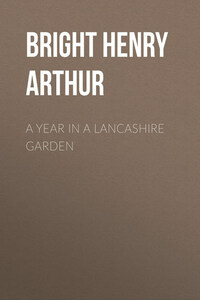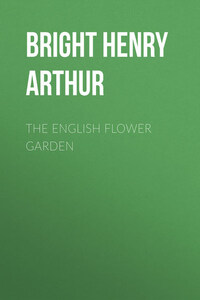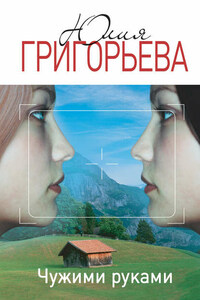This volume is but a collection of Notes, which, at the request of the editor, I wrote, month by month, in 1874, for the columns of the Gardeners' Chronicle.
They pretend to little technical knowledge, and are, I fear, of but little horticultural value. They contain only some slight record of a year's work in a garden, and of those associations which a garden is so certain to call up.
As, however, I found that this monthly record gave pleasure to readers, to whom both the garden and its owner were quite unknown, I printed off some fifty copies to give to those, whom I have the happiness to number among my friends, and for whom a garden has the same interest that it has for me.
Four years have passed since then, and I am still asked for copies which I cannot give.
I have at last, rather reluctantly, for there seems to me something private and personal about the whole affair, resolved to reprint these notes, and see if this little book can win for itself new friends on its own account.
One difficulty, I feel, is that I am describing what happened five years ago. But this I cannot help. To touch or alter would be to spoil the truthfulness of all. The notes must stand absolutely as they were written. But after all, I believe, the difficulty is only an apparent one. The seasons, indeed, may vary – a spring may be later, a summer may be warmer, an autumn may be more fruitful, – but the seasons themselves remain. The same flowers come up each year, the same associations link themselves on to the returning flowers, and the verses of the great poets are unchanged. The details of a garden will alter, but its general effect and aspect are the same.
Nevertheless, something has been learnt, and something remembered, since these notes were written, and this, also communicated from time to time to the Gardeners' Chronicle, I have condensed into a supplementary chapter.
If, as I have heard from a friendly critic, there is too much couleur de rose in my descriptions, I am tempted to retort that this is a colour not perhaps altogether inappropriate to my subject; but, be this as it may, I have described nothing but as it really appeared to me, and I have only wished that others should receive the same impressions as myself.
For my very open egotism I make no apology; it was a necessity of the plan on which I wrote.
I have added notes on the Roman Viola, and on the Sunflower of the Classics, and have given some extracts respecting the Solanum and the fly-catching Azalea. I have also reprinted, by the editor's kind permission, part of an article of mine that appeared in the Athenæum on "Flowers and the Poets."
Introductory – The House – The Latest Flowers – The Arbutus – Chrysanthemums – Fallen Leaves – Planting – The Apple-room – The Log-house – Christmas.
December 3.– These notes are written for those who love gardens as I do, but not for those who have a professional knowledge of the subject; and they are written in the hope that it may not be quite impossible to convey to others some little of the delight, which grows (more certainly than any bud or flower) from the possession and management of a garden. I cannot, of course, by any words of mine, give the hot glow of colour from a bed of scarlet Ranunculus with the sun full upon it, or bring out the delicious scent of those double Tuberoses, which did so well with me this autumn; but I can at least speak of my plans and projects, tell what I am doing, and how each month I succeed or fail, – and thus share with others the uncertainty, the risks and chances, which are in reality the great charm of gardening. And then, again, gardening joins itself, in a thousand ways, with a thousand associations, to books and literature, and here, too, I shall have much to say.
Lancashire is not the best possible place for a garden, and to be within five miles of a large town is certainly no advantage. We get smoke on one side, and salt breezes on another, and, worst of all, there comes down upon us every now and then a blast, laden with heavy chemical odours, which is more deadly than either smoke or salt. Still we are tolerably open, and in the country. As I sit writing at my library window, I see, beyond the lawn, field after field, until at last the eye rests on the spire of a church three miles away.
A long red-gabled house, with stone facings, and various creepers trained round it, – a small wood (in which there is a rookery) screening us from a country road, and from the west, – lawns with some large trees and several groups of evergreens, – and the walled garden, the outer garden, and the orchard; – it is to these that I invite you. Exclusive of meadow-land there are only some four acres, but four acres are enough for many gardening purposes, and for very great enjoyment.
These are certainly what the American poet Bryant calls "the melancholy days, the saddest in the year." The late autumn flowers are over; – the early spring ones are still buried under the soil. I could only find this morning a single blighted monthly Rose, a Wallflower or two, an uneasy-looking Polyanthus, and some yellow Jasmine against the house – and that was all. Two days of early frost had killed the rest. Oddly enough, however, a small purple flower caught my eye on the mixed border; it was a Virginian Stock, – but what it was doing at this unwonted season who can say? Then, of course, the Arbutus is still in bloom, as it has been for the last two months, and very beautiful it is. There is a large bush of it just as you enter the walled garden, and, though the pink clusters of blossom are now past their best, they are more welcome than ever in the present dearth of flowers. Can any one tell me why my Arbutus does not fruit? It has only borne one single berry in the last four years; and yet the Arbutus fruits abundantly in other places in Lancashire, and at Lytham, close to the sea, I saw clusters of berries only the other day. Sometimes I fancy there is a better chance of the fruit setting if the pollen is from another tree, and I have lately planted a second Arbutus for the experiment. I am very fond of the Arbutus; it carries me back to the days of Horace, for we remember how his goats, wandering along the lower slopes of Lucretilis, would browse upon the thickets of Arbutus that fringed its side.









